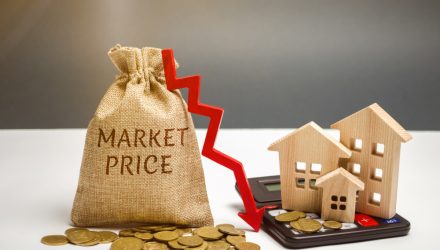Oil’s well-documented struggles are denting the case of alternative energy investments. Actually, the opposite could prove to be true as highlighted by a one-month gain of 22% for the ALPS Clean Energy ETF (ACES).
ACES follows the CIBC Atlas Clean Energy Index. That benchmark is comprised of U.S. and Canada-based companies that primarily operate in the clean energy sector. Constituents are companies focused on renewables and other clean technologies that enable the evolution of a more sustainable energy sector.
Declining prices are bad for oil, but in the renewable energy space, lower costs are advantageous as they help increase adoption.
“The levelized cost of electricity for onshore wind and utility-scale solar fell 9% and 4%, respectively, across the globe over the last six months, according to an April 28 report by BloombergNEF,” reports S&P Global Market Intelligence.
ACES Angles
ACES’ components provide the products and services that enable the evolution of a more sustainable energy sector. The green energy companies are engaged in renewable energy sources, including solar power, wind power, hydroelectricity, geothermal energy, biomass, biofuels, and tidal/wave energy; clean technologies, including electric vehicles, energy storage, lithium, fuel cell, LED, smart grid, and energy efficiency technologies; and other emerging clean energy activities and technologies.
“The global levelized cost of electricity, or LCOE, the benchmark fell to $44/MWh for onshore wind and to $50/MWh for utility-scale solar. For battery storage, worldwide LCOE dropped to $150/MWh for systems with a four-hour duration, half what it was two years ago,” notes S&P Global Market Intelligence.
Boosting the long-term cases for ACES are data confirming solar and wind installation prices will continue declining in the coming decade.
“The report predicted that the LCOE of the most efficient solar and wind projects will drop through the $20/MWh barrier globally by 2030,” according to S&P Global Market Intelligence.
ACES takes a different approach than what is seen in other traditional clean energy ETFs. Many of the legacy funds in this space focus on one alternative energy concept, such as solar or wind power. Buoyed by double-digit growth rates in global solar installations over the next decade, ACES, with a substantial solar weight, could be a long-term winner.
Renewables prices could increase due to the coronavirus, according to some market observers, but the consensus appears to be that the spike will be short-lived if it arrives at all.
For more on thematic ETFs, please visit our Thematic Investing Channel.
The opinions and forecasts expressed herein are solely those of Tom Lydon, and may not actually come to pass. Information on this site should not be used or construed as an offer to sell, a solicitation of an offer to buy, or a recommendation for any product.

